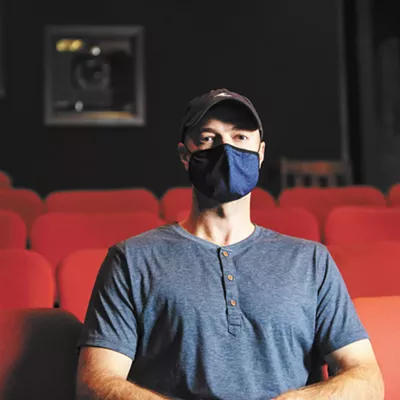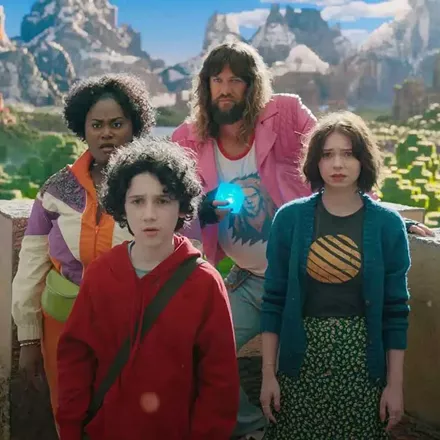Introductory disclaimer: Prior to sitting down for the feature film version of Entourage, I'd never watched a single minute of the 2004-11 HBO series that inspired it. Sure, I'd absorbed a few details simply through pop-culture osmosis, like the fact that its central character, actor Vincent Chase (Adrian Grenier), had starred in a blockbuster movie version of Aquaman, and that his high-strung agent, Ari Gold (Jeremy Piven), was prone to profane catch phrases like "Let's hug it out, bitch." Beyond that, I had nothing invested in visiting with these people. It was never going to work for me as simply a fan-service brand extension, like its gender-reversed HBO counterpart, Sex and the City. It was going to have to work as a movie.
So I was at least vaguely pleased at the nod toward newcomers made by a Piers Morgan-hosted interview segment, which introduces the members of Vincent's crew of pals: agent-producer Eric "E" Murphy (Kevin Connolly); driver Sal "Turtle" Assante (Jerry Ferrara); and Vincent's hapless, struggling-actor half-brother, Johnny "Drama" Chase (Kevin Dillon). When it appeared that the plot would revolve around Vincent making his directing debut with a contemporary adaptation of Dr. Jekyll and Mr. Hyde, overseen by now-studio boss Ari, there was at least the faint hope that Entourage would extend the idea of the show I had in my head: goofballs who were in over their heads in a cutthroat business, while riding the coattails of their talentless but successful buddy.
That idea, I now realize, was woefully inaccurate.
For Entourage — written and directed by series creator Doug Ellin — has nothing at all to say about Hollywood's absence of meritocracy. There's nothing ironic about the fact that the movie begins with Vincent throwing a bikini party on a yacht to celebrate the end of a marriage that lasted only nine days, or about his conviction that he can step behind the camera for the first time on a $100 million-budgeted blockbuster. There's no point to any of this, but hey, how about these gay jokes? And check out the tits on her!"
Maybe true fans are into this, but for someone like me it's merely depressing. Maybe the show's parade of guest appearances heightened the sense of it really being a Hollywood story, but here the slew of drive-by cameos — in some cases, quite literally — amount to nothing more than "Hey look, it's that guy!" And maybe the fact that, over the course of eight years, none of the characters changed in any way became part of its easygoing sitcom charm, rather than evidence that it had no ambition beyond celebrating the meatheadedness of its resident meatheads. ♦

















